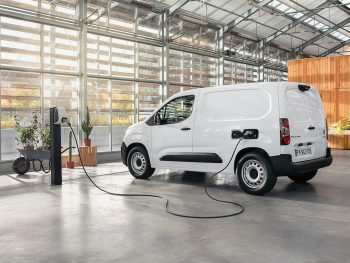UK registrations of light commercial vehicles rose by more than a fifth (21.4%) in 2021, including record numbers of electric vans.

A total of 355,380 new vans were registered in the year, some 62,723 units more than last year and just 2.8% down on 2019 and 3.0% down on the five-year pre-Covid average.
Performance was boosted on the back of the best December for the sector since 2015, with a 7.8% increase to 29,404 LCVs.
2021 uptake was driven by significant fleet investments, with strong underlying demand from key sectors – notably construction and home deliveries.
Electric vehicle demand soared, with a record 12,759 battery electric vehicles (BEVs) joining the roads – more than double the 5,266 registered last year. However, this still only equates to a total market share of 3.6% – effectively one in 28 vans – compared to 11.6% or one in nine new car registrations. With just eight years to go until the ban on petrol and diesel cars and vans kicks in, the SMMT has highlighted that this shows just how far the LCV BEV market needs to grow.
Within the various sectors, there were significant increases for both 4x4s and the heaviest vans weighing greater than 2.5-3.5 tonnes – up 183.0% and 27.8% respectively. The 2.0-2.5 tonnes category were the only LCV segment to show a decline, although this was by a marginal 0.8%.
Looking forward to 2022, the LCV market is predicted to grow further to 363,700 units, bringing registrations in line with 2019’s 365,778 units.
But Mike Hawes, SMMT chief executive, warned there was still the potential for market volatility with the Omicron variant and component shortages threatening supply chains.
“Manufacturers are working hard to ensure deliveries, and, with a record number of battery electric vans registered this past year, customers can be assured that more of these new technology vehicles will be available to keep society and businesses moving in an increasingly zero-emission manner,” he commented.

